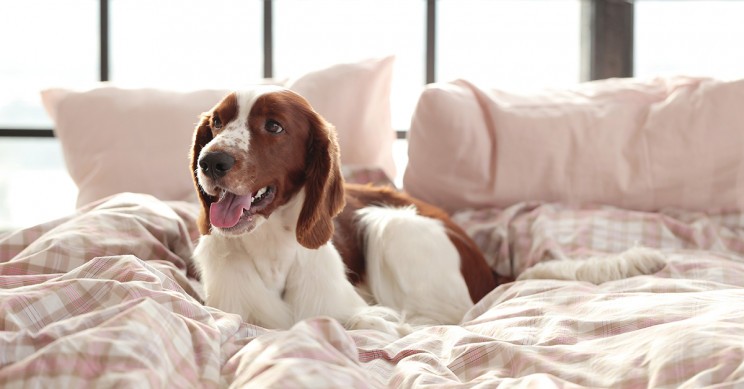
More and more people and families are choosing to have a pet at home. Pets are therefore very present in our lives, so much so that in recent times various media sources have pointed out that in some areas, there are more pets than children. This phenomenon has important repercussions on different aspects of people's daily lives; for example, when someone wants to rent a house to live in, together with their pet (or pets).
It is very common for landlords to be reluctant to admit pets into the houses they rent, for fear that they will cause damage or inconvenience to neighbours. This is an extra difficulty for pet owners when they are looking for a house or flat to rent. For this reason, it is important for all parties, tenant and landlord, to know the answer to the following question: can landlords ban pets from a rented flat?
Agreement between parties and community regulations
The first step is to cover the legal basis and find out in which legistaion provisions for this can be found. On the one hand, we find that neither the Horizontal Property Law nor the Civil Code nor the Criminal Code expressly prohibit the possession of pets in a rented property.
On the other hand, you can go to the Urban Lease Law (LAU). In this regulation, article 4.2, states that "housing leases shall be governed by the agreements, clauses and conditions determined by the will of those involved". The consequence of this provision is that, although it does not directly address this issue, it does make clear that it will be governed by the agreement between the two parties, so that clauses expressly prohibiting this may be included in the contract.
Similarly, in those cases where it is not prohibited, depending on this rule it is possible to establish clauses aimed at regulating the possession of a pet, for example, limiting the type of animals or allowing the owner to visit the property to ensure that no damage has been caused and that what was agreed has been complied with.
However, if the contract does not contain an express prohibition, the tenant will not have any legal impediment to be able to live in the dwelling with pets.
There is another document that can influence the possession of pets. The regulations of the community of owners can prohibit the residents of the building from possessing any type of pet. Therefore, when in doubt, it is advisable for the tenant to get adequate information to avoid unpleasant surprises once settled in.
Termination of the contract
If dealing with a case where, despite not being allowed, the tenant has brought a pet into the house, this means there has been a breach of the contract. Adhering to the contract is the obligation of the owner and tenant, meaning that if one of the parties breaks it, the other has the right to terminate the contract.
Therefore, if the tenant has animals in the property, despite an express prohibition, the owner can request the abandonment of the property, according to article 27.1 of the LAU.
What if they are a nuisance?
Sometimes, it can be the case that, even though the rental contract allows it, animals can be a nuisance within an apartment block, causing disturbances and upsetting neighbours. When this happens, in some cases the landlord has the legal power to terminate the contract.
These nuisances are those that comply with the details of Article 27.2 of the LAU, which states that "the lessor may terminate the contract by right" for "the carrying out of damage caused fraudulently to the property or of works not consented to by the lessor when the latter's consent is required" or because annoying, unhealthy, harmful or dangerous activities are carried out.
In short, if the lessor does not want animals on his property, it is important that the prohibition is clearly stated in the clauses of the contract.
Therefore, if a tenant wants to rent a property and has pets, he or she must make sure that there is no clause that prevents this and, furthermore, take the necessary measures to avoid the landlord from terminating the contract due to disturbances caused by a pet.